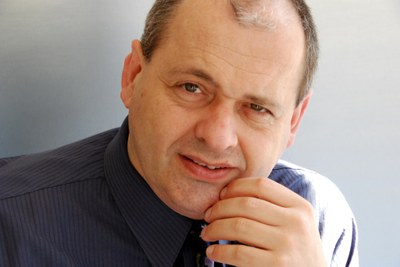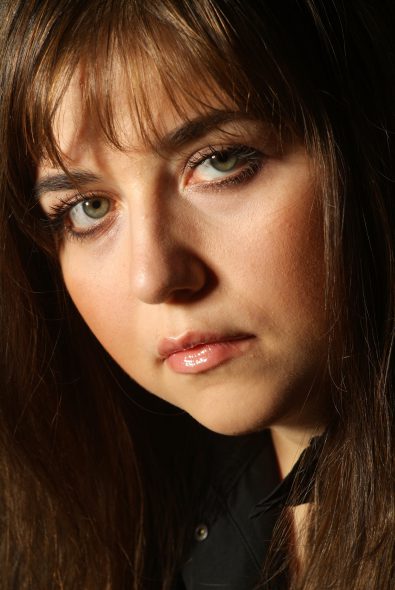Piano Joins Quartet, Lovely Results
Guest pianist Eli Kalman joins Philomusica Quartet in boffo program.
The Philomusica Quartet, will close their season next Monday evening with a concert featuring major chamber works by Brahms and Dohnányi plus charming miniatures by Bloch and Auerbach. The Philomusica (violinists Jeanyi Kim and Alexander Mandl, violist Nathan Hackett and cellist Adrien Zitoun) will be joined by pianist Eli Kalman, Professor of Piano at the University of Wisconsin-Oshkosh. Kalman played a Cesar Franck Quintet with the Philomusica in the 2013-14 series.
Mandl, an enthusiastic admirer of Kalman’s piano playing, finds that “his love for the instrument is palpable from the start.” To Mandl, Kalman’s “open give and take” fits the style of the Philomusica who work to comprehend and then reflect the intent of the composers they play.
Kalman will join the Quartet for Ernő von Dohnányi‘s Piano Quintet No. 1 in C minor, Op. 1 (1895). This work was the first that Dohnányi felt comfortable assigning a opus number. Strongly influenced by Brahms and Robert Schumann, he won Brahm’s strong approval, who said “I could not have written it better myself.” Entirely classical in form, the melodies and the texture of the work are influenced by Dohnányi’s Hungarian roots. Kalman’s advocacy for Eastern European music will serve the performance well. Kalman finds that “Dohnanyi displays masterful integration of symphonic textures in chamber writing, daring polyphony and in the same direction as Brahms rich rhythmical and melodic ambiguity.” He also notes “a lot of hidden Hungarian language-specific elements in this quintet.”
The concert will pair the Dohnányi Quintet with a quartet by Johannes Brahms. Typically, Brahms limited his published string quartets to two master-works. His String Quartet No. 2 in A minor, Op. 51 No. 2 (1873) offers challenging complexity to the players and satisfying lyricism and drama to the listeners.
Analysis of the Quartet can be consumed by the internal complexities of the piece. Brahms developed a motive from a motto ‘Free, but Lonely,’ attributed to his friend, the violist Joseph Joachim. The German words work out to the note sequence F-A-E. In Guide to Chamber Music critic Melvin Berger chooses the analytical path. He finds the first movement “an outstanding demonstrations of polyphonic writing, replete with canons, inversions, and retrograde motion, in which the melody is, respectively, imitated, turned upside down and played backward.” Brahms often assigns different tempos to pairs of the quartet. The dance movement blends a slower theme with a variation on the minuetto. A fast czardas dance in the final movement is interwoven with a waltz tune by others. Complex canonical measures are passed among players.
But one can just listen to such a work for the recurring themes, the rhythmic effects, the glimpses of canons and the symphonic ambitions of a four-voice quartet. Hungarian folk influences help to lighted the quartet. The energy of dance drives the work as much as the intricacy of composition.
The Quartet will play three miniatures by Swiss-American composer Ernest Bloch, known collectively as Paysages (Landscapes)(1923). The landscapes — North, Alpestre, and Tongataboo — paint effective impressionist portraits. North quietly recalls the bleakness and desolation of the Arctic Swiss folk themes appear in warm Alpine images. Tongataboo incorporates bewitching rhythms suggesting a lively Pacific Island dance.
In his first appearance with the Philomusica in 2013, Kalman introduced most of us to contemporary Russian-American musician, Lera Auerbach. Her Images from Childhood produces vivid images in efficient miniature forms. This concert, Kalman will select from 24 Preludes for Piano, Op. 41 (1998). A bit more abstract, the Preludes nonetheless sparkle with inventive phrasing, even though most are less than two minutes in length. Kalman, who has recorded a CD of these works, writes that the set “presents an epic journey with no emotional stone left unturned. At this dimension, the preludes come together as one large narrative with colorful diversity, covering the entire gamut of human feelings. Throughout this massive work she employs distinctive motives, some of which combine in the last prelude to unify the whole.”
Auerbach, a modern renaissance composer working in New York, is also known for her art, poetry, sculpture and piano concerts. Kalman writes that “she is undoubtedly the ultimate born-artist in body and soul. She bridges between her cultural past and the present with a graceful Russian story-telling voice, offering musical ideas of considerable intensity.”
Despite an apparent diversity in the programming for this concert, the links between the works will contribute to a satisfying, well-integrated evening.
Monday’s May 8 concert begins at 7:30 p.m. at Wisconsin Lutheran College’s Schwann Concert Hall – located at 8815 W. Wisconsin Ave., Milwaukee. General admission tickets ($25) may be purchased at the door or in advance through the Wisconsin Lutheran College box office web site or at 414-443-8802. Student tickets are available for $12. A new three-story parking garage just east of Schwann Concert Hall offers free parking.
Preview
-
A Sacred Choir, 70 Voices Strong
 Dec 14th, 2025 by Martha Brown
Dec 14th, 2025 by Martha Brown
-
Prometheus Trio Goes Bohemian
 Dec 3rd, 2025 by Martha Brown
Dec 3rd, 2025 by Martha Brown
-
Present Music Offers New Choral Works
 Nov 20th, 2025 by Michael Barndt
Nov 20th, 2025 by Michael Barndt























